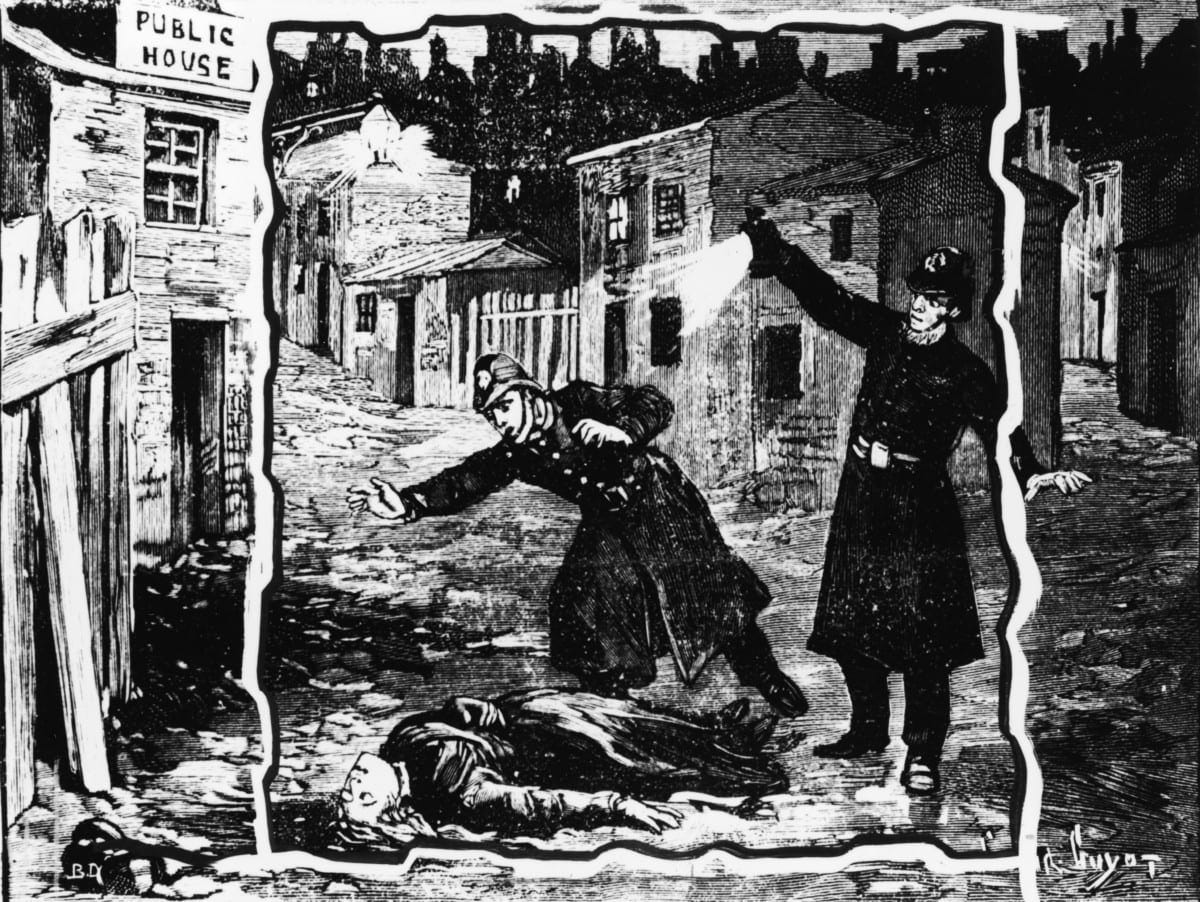Whitechapel: Series 1
Spoiler alert: this blog post gives away the conclusion of the mystery but not the identity of the killer.
Whitechapel (2009 to 2013) was an ITV series of four series. This blog post will cover the first series. This format changed over the four series, but the first series consists of a whole single mystery, in which a police department investigates killings committed by someone who is copying the killings of Jack the Ripper.
I see that the show is described as a police procedural in several places on the internet. As is so often the case, I don't think that's a fair description of the show so I'm going to have a go at broadening the online description of the show.
It really isn't a police procedural at all, in my opinion, at least not understanding police procedural to mean a show in which the investigation of the crime is the actual plot. In this show the police investigate a series of crimes, however the ongoing investigation is very much a setting for a number of human interest stories.
For a start we have a thread about the relationships within the team, particularly a conflict between Detective Inspector Joseph Chandler and Detective Sergeant Ray Miles. Chandler is considered a 'plastic policeman' by the rest of the team because this is his first murder and he's been on a lot of ocurses. Normally this would be the sort of thing which makes me lose the will to live, because I don't find that sort of tension interesting and would normally want to slap Miles for his attitude. However in this show this tension doesn't dominate because there is so much else going on, and in fact their two different approaches are contrasted to good effect in the investigation.
It is also clear that this investigation really takes its toll on the police officers, and so this show is as much about human relationships and coping as it is about murder. At one point they discuss the murder over a board game.
Then we have the connection with Jack the Ripper: Joseph Chandler was a police inspector and first to arrive at the scene of Ripper victim Annie Chapman, for example, and various other characters have names of people in the real world Ripper case. If this sounds naff, all I can say is that it isn't when you watch the show.
One of the ways the murders and show are further connected to the real world Ripper murders is that they arrest a suspect who is a Ripperologist called Edward Buchan (played to great effect by Steve Pemberton of the League of Gentlemen), which was also the name of a suspect in the original Ripper murders. Brilliantly, they take on Buchan as a sort of consultant because of his knowledge of the Ripper murders. There is also a very effective sequence where Chandler hands out books and DVDs about the Ripper murders to his team of police officers who haven't read a book in years, and suddenly they are all comparing what they're reading in the books and how it could be of reference to the current murders.
There is another very affecting scene where Buchan is leading a Ripper tour and realises that he has to stop it because he can't cope with the public's lack of reverence for the victims and bloodthirsty wish to see the scenes of the current crimes.
An element which isn't perhaps teased out to its full extent, and could perhaps have been considered as an option for future plots, is that Chandler has been parachuted in on the way to a sinecure and the power and prestige which makes decisions. The power held by the great and good is seen here but not fully expanded on: perhaps I should say that this isn't a criticism.
This complex story and investigation is told over three episodes in the first series, and I have to say it never once flags or becomes boring. It is perfectly paced and I literally can't fault the plot or production. This is some excellent television.
There are just two possible criticisms I can think of, although both might just come down to personal preference.
The first is that a show based on a historical murderer is necessarily predictable. If it's a murderer who hasn't finally been identified it can either go with an inconclusive ending or make up a conclusion, both of which might be unsatisfactory to some viewers. This show identifies the murderer but he doesn't get to justice. On reflection I don't think I was ever going to be happy with how this show ended so I'm not going to say that this is a major criticism.
The other one is that as happened in the real Ripper murders, the police interview a number of different suspects. My criticism would be that it is abundantly clear that some of them are just ridiculous as suspects, to the extent that I just think it would be unlikely they'd get as far as being interviewed under caution. One of them gets seconds into his interview before he points out that he was in police custody at the time of the murder: we all know the police are incompetent but not to notice that is a balls up of monumental proportions.
So in all a show which is far more than its listing as police procedural would suggest, with far more human interest than is apparent at first glance.
This blog is mirrored at
culttvblog.tumblr.com/archive (from September 2023) and culttvblog.substack.com (from January 2023 and where you can subscribe by email)
Archives from 2013 to September 2023 may be found at culttvblog.blogspot.com and there is an index to the tags used on the Tumblr version at https://www.tumblr.com/culttvblog/729194158177370112/this-blog


